The newest Amazon Internet Providers (AWS) outage on October 20 has sparked a dialog about distributed alternate options and resilient hybrid methods.
The outage lasted a number of hours and disrupted main web sites and apps, together with Robinhood. Specialists say this highlights the vulnerabilities of immediately’s web, which is dominated by a small variety of centralized cloud suppliers. In keeping with Statista, AWS accounts for 30% of the worldwide cloud market, forward of Microsoft Azure’s 21% and Google Cloud’s 12%, with the three corporations accounting for greater than 60% of the entire cloud share.
“The overwhelming majority of the info that makes up the web sites we use day-after-day is saved in knowledge warehouses owned by simply three corporations, and we now have repeatedly seen these corporations endure energy outages that deliver huge swaths of the online down for hours,” Marta Belcher, president and chair of the Filecoin Basis, mentioned in feedback shared with The Defiant. “This AWS outage is simply one other instance of the only level of failure downside.”
The incident has renewed curiosity in alternate options to centralized infrastructure, together with blockchain-based decentralized networks resembling Filecoin and Akash, Komodo CTO Kadan Stadelmann instructed The Defiant.
“Each time AWS goes down, it is a reminder to not solely[decentralized finance]however all the know-how business that the web nonetheless operates with a single level of failure,” he mentioned. “The irony is that many ‘decentralized’ tasks nonetheless depend on centralized cloud infrastructure, and even people who do not are nonetheless operating on an ISP or some sort of centralized technical infrastructure. That is the weakest hyperlink.”
file coin
Filecoin is a decentralized storage community with a complete worth locked (TVL) of $21 million that makes use of cryptographic proofs to make sure that your knowledge is securely saved and repeatedly accessible throughout a community of unbiased suppliers.
Belcher defined that this method reduces dependence on a single firm or server and permits web sites and functions to stay on-line even when some nodes fail.
“Filecoin is all about creating a sturdy, decentralized various for the subsequent era internet in order that we aren’t depending on only one firm,” she instructed The Defiant. “This contains Web3 tasks. If a Web3 mission is out of service resulting from an AWS outage, it highlights the necessity to use distributed storage for these tasks as effectively.”
In keeping with a current Messari report commissioned by the Filecoin Basis, the community contains instruments resembling Akave, Storacha, and Basin for integration and search networks resembling Titan and FilCDN to enhance velocity and reliability.
Akash
One other various that consultants level to is Akash, a decentralized cloud platform that enables builders to lease computing sources from a decentralized community as a substitute of counting on a centralized supplier. Handle allocations, funds, and validation utilizing blockchain-based sensible contracts.
“Relating to compute, Akash (distributed GPU/CPU market), Valdi, and Flux (distributed app/compute cloth) are the primary choices that builders are literally deploying proper now,” Storj CTO Jacob Willoughby instructed The Defiant.
Willoughby defined that the advantages of utilizing such a platform embrace lowered danger of a single cloud, elevated censorship resistance, elevated knowledge sturdiness, and lowered vendor lock-in. He added {that a} sensible method for a lot of corporations is a hybrid multicloud technique.
Utilizing instruments like Kubernetes and different compute coordination programs, corporations can transfer data-intensive processes to distributed networks whereas operating core workloads on AWS or GCP, he mentioned. This permits sources to routinely scale based mostly on demand, lowering the possibility of downtime attributable to a single supplier.
“This requires corporations which can be keen to give attention to the long run and prioritize efforts to deploy this and take a look at it for failure,” he mentioned. “The long-term various is to attempt to get a solution to ‘What if the economic system goes down?'”
commerce off
Nonetheless, as corporations look past conventional cloud suppliers, they face trade-offs. A centralized cloud is straightforward to make use of, however an outage could cause main issues. Distributed programs are tough to handle, Stadelman mentioned, however they will proceed to function even when a element fails.
He defined that the trade-offs are advanced and concluded that “with each AWS outage, extra groups understand which is definitely extra essential.”
In the meantime, StatusCake CEO and founder James Barnes supplied a special perspective. As an infrastructure monitoring service, his group has seen firsthand how cloud suppliers like AWS run into issues and incident occasions can spike dramatically in seconds.
Barnes identified that whereas there’s a rising curiosity in “cloud decentralization,” the Web is already a distributed system with built-in redundancy and world routing. Main suppliers additionally present predictability and reliability for safety for big organizations.
“Provided that the web is already decentralized, changing it with crypto nodes does not inherently make issues extra resilient,” he mentioned. “In actual fact, it is going to virtually actually end in volatility, inconsistent efficiency, and an absence of clear accountability when one thing goes incorrect.”
As an alternative, he prompt viewing distributed options as a backup device for redundancy moderately than a whole substitute for conventional cloud infrastructure.
“Clever diversification”
Nokkvi Dan Ellidason, CEO of GAIMIN, supplied a 3rd perspective, highlighting how distributed programs can be utilized strategically.
“This isn’t about substitute, that is about maturing crucial web infrastructure.
“For critical corporations, a whole transition to a purely decentralized mannequin immediately can be irresponsible. The true technique is clever diversification,” he mentioned.
Ellidason defined that platforms have to decouple the cloud and leverage the strengths of recent infrastructure layers the place it makes probably the most sense.
“For workloads the place resiliency and excessive value effectivity are paramount, resembling archival storage, content material supply networks, and sure stateless computing duties, DePIN provides an virtually unbeatable worth proposition,” he defined. “So it’s about breaking it down and ensuring you don’t get locked right into a system that doesn’t serve you.”
He praised tasks like Filecoin for decentralized storage and Render for reimagining the economics of GPU rendering. “They’ve confirmed that this mannequin works at scale, and we’re studying an amazing quantity from that,” Elidason mentioned. “So the purpose is to not abandon hyperscalers; it’s to ramp up hyperscalers, scale back the chance of hyperscaler dependence, and construct a extra full, resilient, and economically environment friendly Web by way of distributed programs.”










